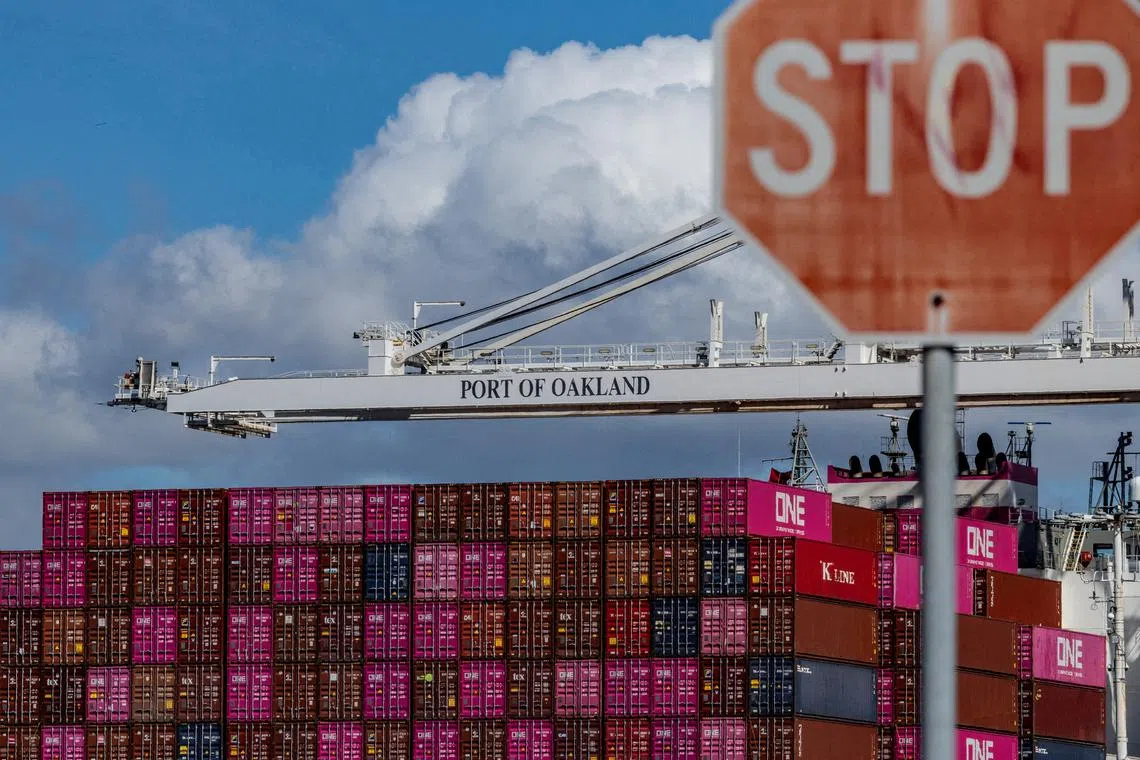Trump says reciprocal tariffs will target all countries
Sign up now: Get ST's newsletters delivered to your inbox

In February, President Donald Trump signed a memorandum that directed US trade officials to go country by country and put together a list of tailored tariff countermeasures.
PHOTO: REUTERS
ABOARD AIR FORCE ONE – US President Donald Trump said on March 30 that the reciprocal tariffs he is set to announce this week will include all nations, beyond just a smaller group of 10 to 15 countries with the biggest trade imbalances.
Mr Trump has promised to unveil a massive tariff plan on April 2, which he has dubbed “Liberation Day”.
He has already imposed tariffs on aluminium, steel and autos, along with increased tariffs on all goods from China.
“You’d start with all countries,” he told reporters aboard Air Force One. “Essentially all of the countries that we’re talking about.”
White House economics adviser Kevin Hassett recently told Fox Business that the administration’s tariffs focus would be on 10 to 15 countries with the worst trade imbalances, although he did not list them.
Mr Trump sees tariffs as a way of protecting the domestic economy from unfair global competition and a bargaining chip for better terms for the US.
However, concerns about a trade war are unsettling markets and creating fears of a recession in the US.
Mr Trump has said he will impose a suite of reciprocal tariffs against nations that charge fees on US exports, promising to match those countries’ duties.
In February, Mr Trump signed a memorandum that directed US trade officials to go country by country
Last week, he suggested he might scale back his reciprocal plans, perhaps imposing tariffs in some cases at lower rates than what countries charge the United States. REUTERS


